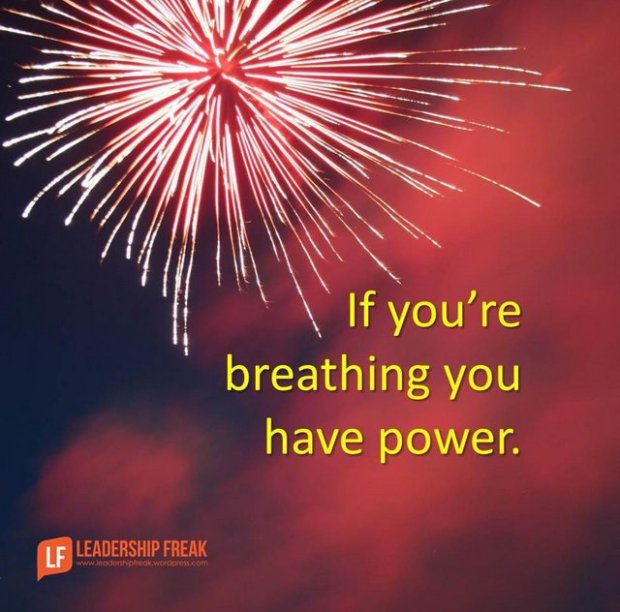A great post by Dan Rockwell.
Frustration is connected to feeling powerless. You wouldn’t be angry if you had the power to change it.
People who feel powerless respond with frustration to opportunity, difficulty, challenge and uncertainty.
Power:
Power is the ability to change something.
Even weak people have power.
Weak people use dark-power to make things worse.
 Dark-power:
Dark-power:
- Backstabbing.
- Undermining.
- Gossip.
- Distracting and diluting focus.
- Pulling back.
- Deception.
- Sabotage.
Successful leaders use power to make things better.
12 ways to move from powerless to powerful:
- Say yes selectively. How will saying yes move you and your organization forward. If you aren’t sure, say no.
- Learn to say no with compassion, but don’t come off angry,
resistant, or reluctant. Say no to activities that collide with your
values, priorities, mission, and vision. If you’re saying no to indulge
yourself you’re losing power not gaining it.
- Focus on things within your control – yourself, your responses, and your immediate environment. Ask, “Can we control this,” if not, let it go and move on.
- Be grateful when others serve you. Gratitude increases your power and empowers others.
- Expect people on the team to step up. When they don’t, encourage, reassign, marginalize, or replace them.
- Talk about tough stuff. Just bring it up, compassionately.
- Say what you really think, kindly. Pretending drains power.
- Believe you can make something better. Power is part perception. If you were powerful, how would you act? Act that way.
- Find a new channel of service. Make the lives of others better. Solve a problem.
- Relax. Frantic thoughts and frazzled emotions move you toward powerlessness.
- See strength in others, but don’t minimize your own.
- Just move toward better. Don’t fix everything.
How can leaders help others move toward feeling powerful?
What do you do when you start to feel powerless?
